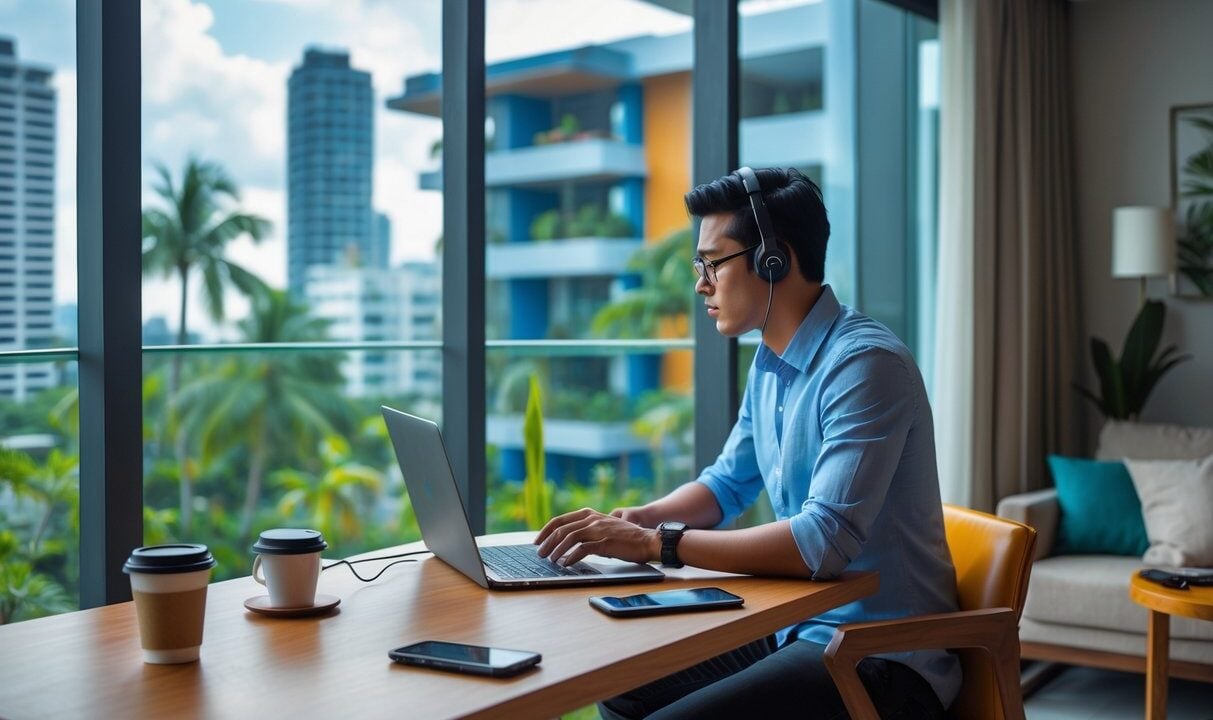How Digital Nomads Are Changing Cebu’s Rental Scene
Cebu just keeps pulling in more digital nomads, and honestly, it’s shaking up the rental scene in ways you can’t ignore. These remote workers are fueling demand for furnished spots, solid Wi-Fi, and lease terms that aren’t set in stone. The city’s standards are creeping higher because of it. Landlords are catching on, converting units and launching co-living spaces that actually make sense for people working from anywhere but the office.
With more remote workers showing up, rents are climbing—especially in business districts and near the coast. It’s a mixed bag: locals and investors are both finding new hurdles and fresh opportunities as the rental market keeps shifting.
Key Takeaways
- Digital nomads are seriously changing how Cebu’s rentals work
- Furnished, flexible rentals and co-living setups are in high demand
- Locals and investors have to keep up with rising prices and shifting renter needs
Why Digital Nomads Are Reshaping Cebu’s Rental Market
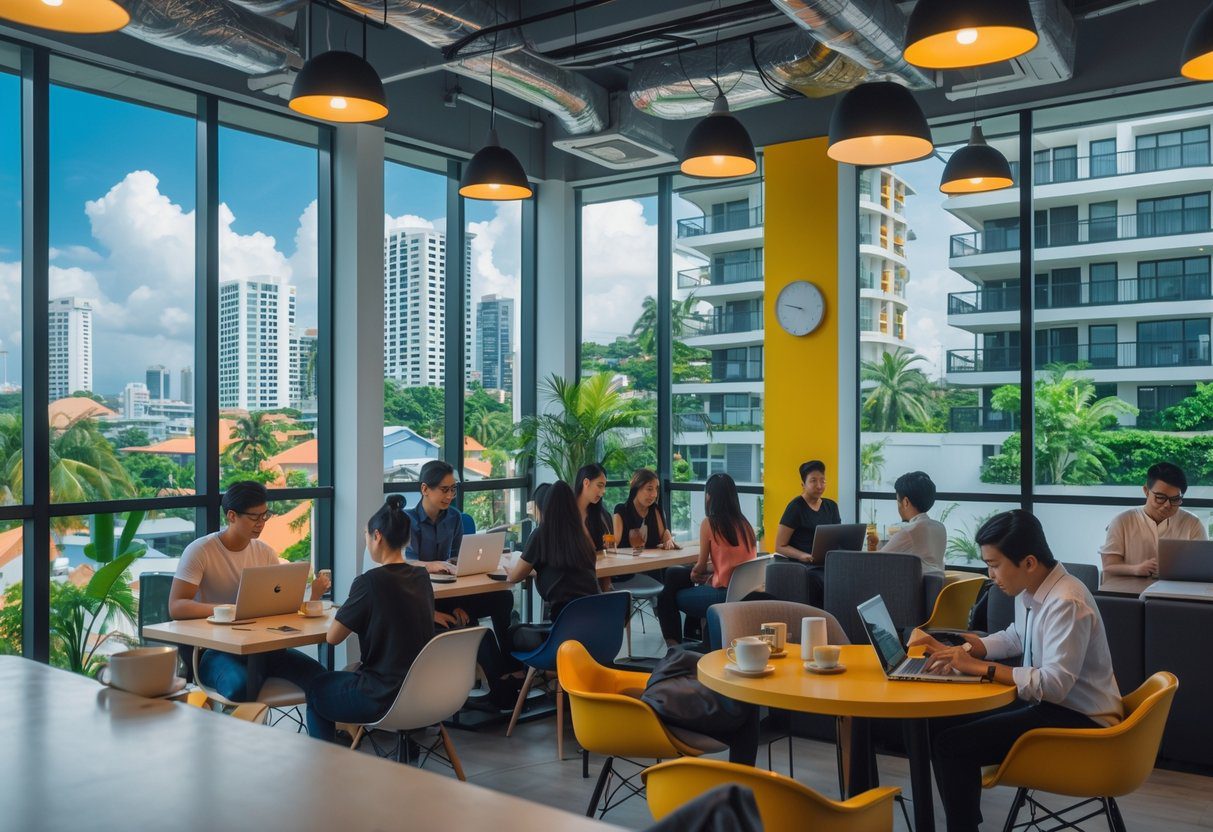
Cebu’s become a magnet for digital nomads, and it’s not hard to see why. The cost of living is manageable, internet’s reliable, and you get that rare blend of city perks and natural escapes.
Factors Attracting Remote Workers to Cebu
So, why are so many remote workers picking Cebu? Well, for starters, it’s wired up for connectivity. IT Park and Cebu Business Park have fast, stable internet—Zoom calls and team chats aren’t a hassle.
Co-working spots like The Company Cebu and Nomads Hub aren’t just about desks. They host events, workshops, and honestly, it’s where you find your people if you’re new in town.
Visa rules don’t hurt either. Folks from a bunch of countries can enter the Philippines visa-free for a month, and it’s pretty easy to extend. That’s a huge plus for people who like to keep their options open.
The Impact of an Affordable Cost of Living
Compared to other Asian hot spots, Cebu is just easier on the wallet. Rent, food, getting around—it all costs less than in places like Singapore, Hong Kong, or even Bali and Chiang Mai most of the time.
You can pick up a furnished studio in Cebu City for under $400 USD a month. Utilities and high-speed internet don’t break the bank either, so you can actually save or just live a little better.
Eating out or grabbing fresh stuff at the market is cheap, too. For digital nomads, that means more money for fun or travel, not just scraping by on expenses.
Lifestyle Balance: City Life Meets Island Adventure
Here’s the kicker: Cebu gives you city living—malls, gyms, decent coffee, plenty of food options, good healthcare—and then, bam, you’re 20 minutes from the beach or a waterfall. That’s pretty rare.
After work, you can hit the sand, hop islands, or just chill somewhere green. It’s a nice antidote to burnout, honestly.
Plus, the social scene isn’t lacking. There are expat meetups, cultural happenings, and adventure groups on weekends. It’s not just about the work grind; it’s actually easy to make friends and settle in. For a lot of nomads, that balance is what seals the deal.
Key Rental Trends Driven by Remote Workers
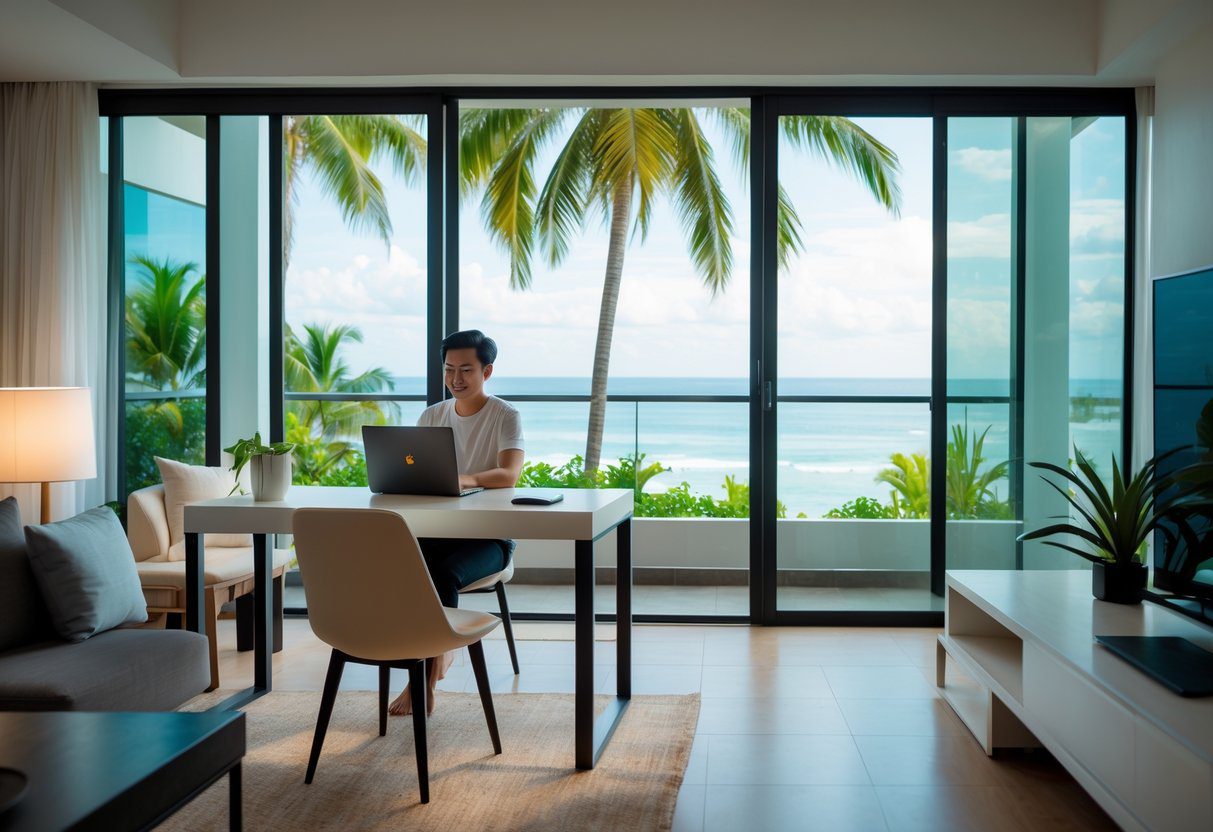
Remote workers aren’t just renting—they’re changing what’s expected from rentals in Cebu, both in the city and out by the water.
Increasing Demand for Furnished and Flexible Rentals
Most digital nomads want furnished places with decent home office setups, fast Wi-Fi, and utilities ready to go. IT Park, Cebu Business Park, Banilad—these are hotspots for short-term, move-in-ready rentals.
Landlords are adapting, offering units with flexible leases and everything set up for work-from-home life. Options range from small studios to bigger flats, so there’s something for everyone.
Airbnb’s made it super easy for people to find what they need, and even hostels are stepping up their game—think private desks, shared kitchens, and dependable Wi-Fi.
Some buildings close to co-working spaces are now openly targeting remote workers. Being able to walk to an office hub or grab a coffee nearby? Big selling point.
Rise of Co-Living and Shared Accommodation
Co-living is catching on, not just downtown but even in spots like Moalboal and Bantayan. Young professionals like the mix of privacy (your own room) and community (shared kitchens, lounges, and workspaces).
These places are usually near coffee shops, groceries, and co-working spots like aSpace Cebu. For nomads, it’s a good way to save money, meet people, and split costs on stuff like cleaning. Landlords like it too—they can rent out rooms separately and keep places full.
Effects on Rental Prices in Business Districts and Beach Areas
Rents in business centers like IT Park and Cebu Business Park have definitely gone up. If a unit has fast Wi-Fi, good security, and is furnished for remote work, it’ll cost more than your basic apartment.
Out at the beach—Moalboal, Bantayan—monthly rentals near coworking spots or beachfront cafes are getting pricier too. Even outside the city, it’s not as cheap as it used to be.
That means locals sometimes struggle to find affordable spots in the most popular areas. On the flip side, landlords and investors are making better returns and have more ways to market their properties. Some now pitch directly to digital nomads, highlighting fast internet, workspaces, and proximity to either the city or nature. Smart move, honestly.
Essential Infrastructure: Connectivity, Amenities, and Transportation
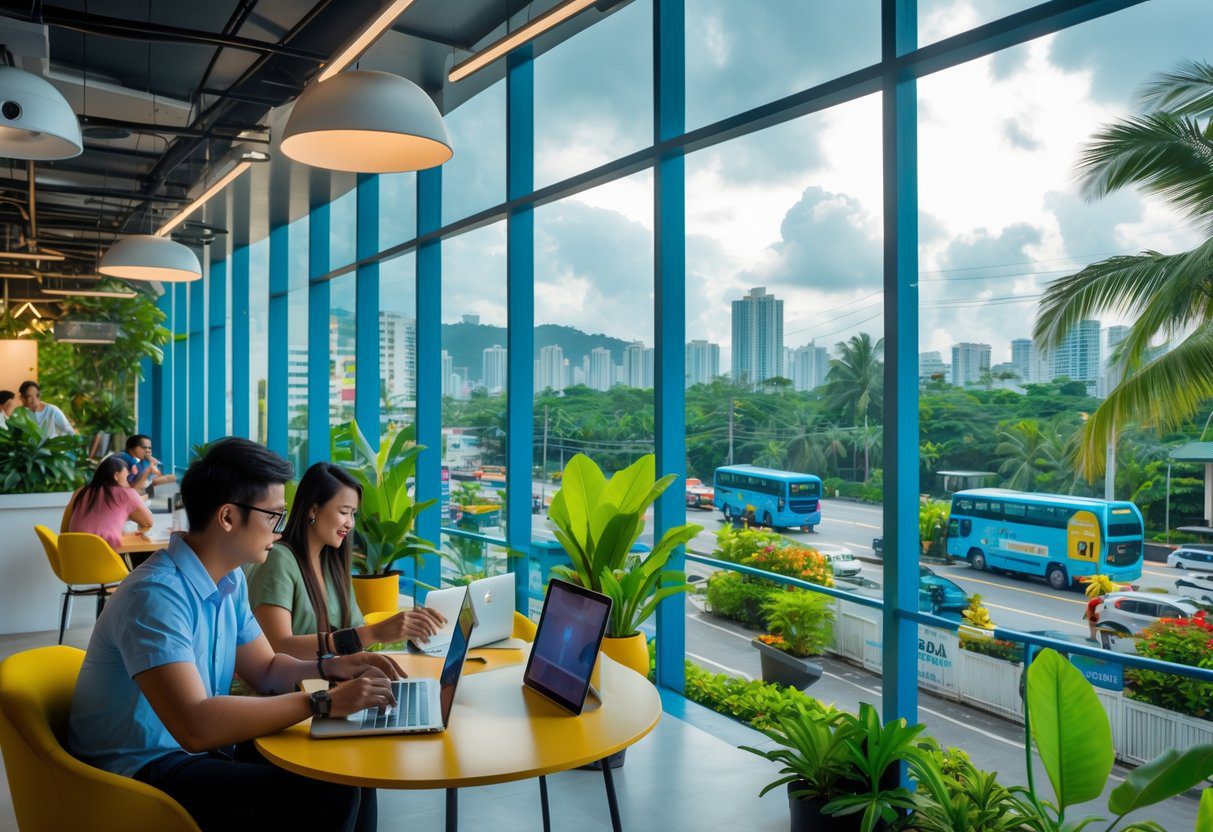
For digital nomads, Cebu’s all about solid internet, comfortable workspaces, and easy ways to get around. Some neighborhoods just make life a lot smoother if you’re working remotely.
Reliable Internet Connections and Co-Working Spaces
Fast, stable internet is non-negotiable. In Cebu City, IT Park, Cebu Business Park, and Banilad usually deliver—expect speeds from 25 to 100 Mbps. Big condos and serviced apartments almost always have fiber connections these days.
Co-working spots like The Company Cebu, A Space Cebu, and Nomads Hub have good desks, office gear, and solid Wi-Fi. They also host meetups, which is a bonus if you’re new and looking to connect.
Plenty of cafes—Murals Hostel and Café comes to mind—offer comfy seats and free Wi-Fi, so freelancers can mix things up. Most of these places are near transit and business areas, which is handy.
Top Neighborhoods and Local Hotspots
If you’re after work-life balance, a few neighborhoods stand out. IT Park and Cebu Business Park have modern condos, co-working options, and plenty of restaurants. Everything’s close by, so you’re not wasting time in traffic.
Banilad is quieter, with lots of coffee shops and serviced apartments. Mango Avenue’s known for nightlife and cheaper rentals.
Table: Notable Hotspots for Digital Nomads in Cebu
| Area | Key Features |
|---|---|
| IT Park | Co-working spaces, fast internet |
| Cebu Business Park | Modern condos, restaurants, gyms |
| Banilad | Quiet, cafes, serviced apartments |
| Mango Avenue | Nightlife, affordable rentals |
Places like A Space Cebu and Murals Hostel and Café are go-to spots for both work and hanging out.
Navigating Cebu: Transport Options for Digital Nomads
Getting around isn’t too tough. Jeepneys are the cheapest and cover most of the city. Not the most comfortable, but they get the job done.
Taxis and Grab are there if you want something quicker or need to haul your laptop around. City buses run through the main neighborhoods and business districts.
Some areas are walkable—especially inside IT Park and Cebu Business Park. Biking’s not super common because of traffic, but you’ll see a few people trying. Most co-working spaces and popular neighborhoods are close to public transport, so you don’t really need your own car.
Opportunities for Landlords, Investors, and the Local Community
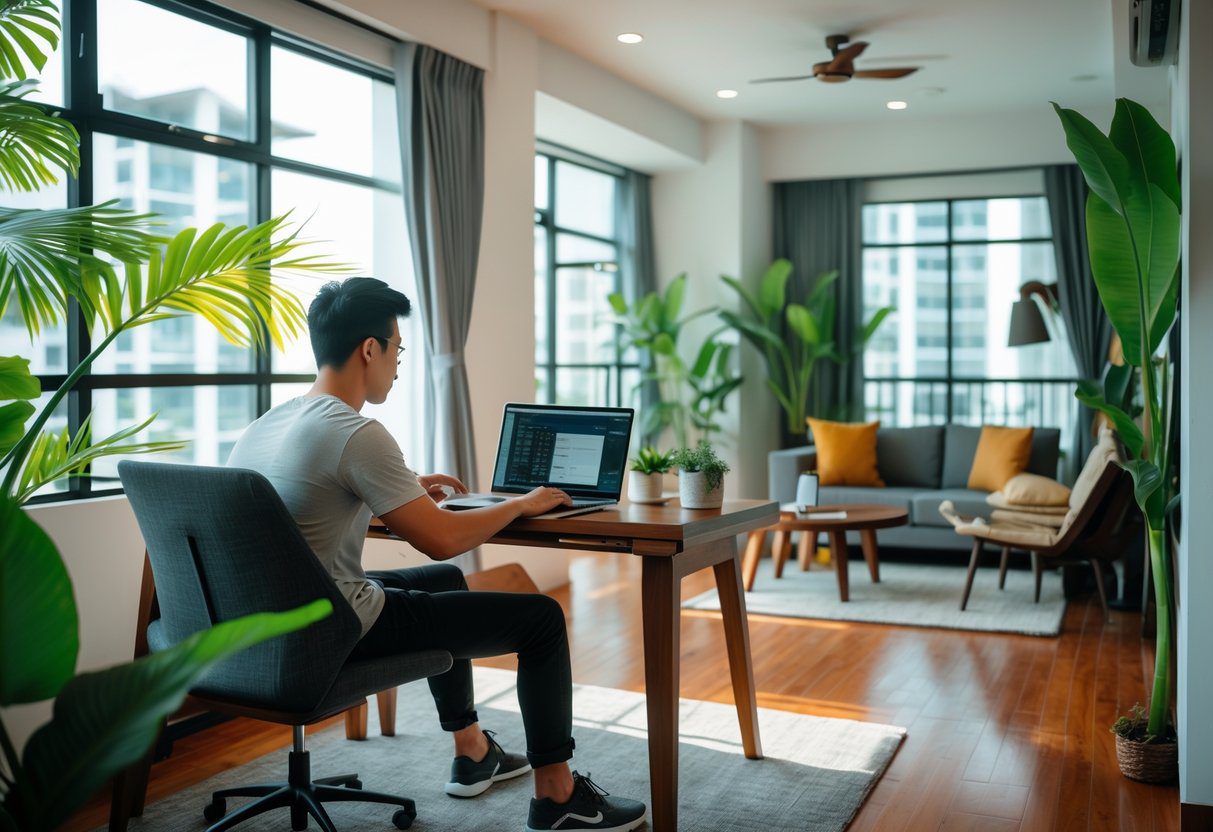
With more digital nomads moving in, Cebu’s landlords have new ways to grow their business. The demand isn’t just changing rentals—it’s helping local shops and restaurants too.
Target Marketing and Property Upgrades
Landlords are rethinking what makes a unit appealing. Fast internet, comfy workspaces, and furnished rooms are now must-haves. Lots of owners are adding desks, better chairs, and even little nooks for work.
Checklist of common upgrades:
| Feature | Why It Matters |
|---|---|
| Fast Wi-Fi | Supports remote work |
| Modern furniture | Move-in ready, more appealing |
| Flexible leases | Short-term stays preferred |
| Workspaces | Helps with daily tasks |
Listing these upgrades online, with clear photos and details, helps landlords find tenants faster. Mentioning proximity to co-working spaces is a smart move, too.
Short-Term Rental Platforms and Growth
Airbnb and other short-term rental sites are blowing up in Cebu. Most digital nomads book for one to six months, which means landlords can make more than with year-long leases.
Flexible lease terms and easy online booking are pretty much standard now. Investors are even buying condos just for Airbnb. Key benefits include:
- Higher nightly rates
- Less time sitting empty
- Easier to clean and maintain between guests
Worth noting: landlords have to follow building rules and Airbnb’s own policies. Some condos limit short-term rentals, so double-check before listing.
Economic Spillover Effects for Local Businesses
When digital nomads show up, it’s not just landlords who benefit—local businesses see a boost too. Remote workers spend on local food, browse neighborhood shops, and can’t seem to resist the seaside seafood spots.
Cafés and co-working spaces fill up. Even mini-marts, laundromats, and delivery folks get busier as nomads settle in. There’s more work for locals in property upkeep and cleaning, too.
All this helps small businesses and keeps Cebu’s economy humming along. Shops and eateries near popular rentals are especially busy these days.
Challenges and Considerations for Sustainable Growth
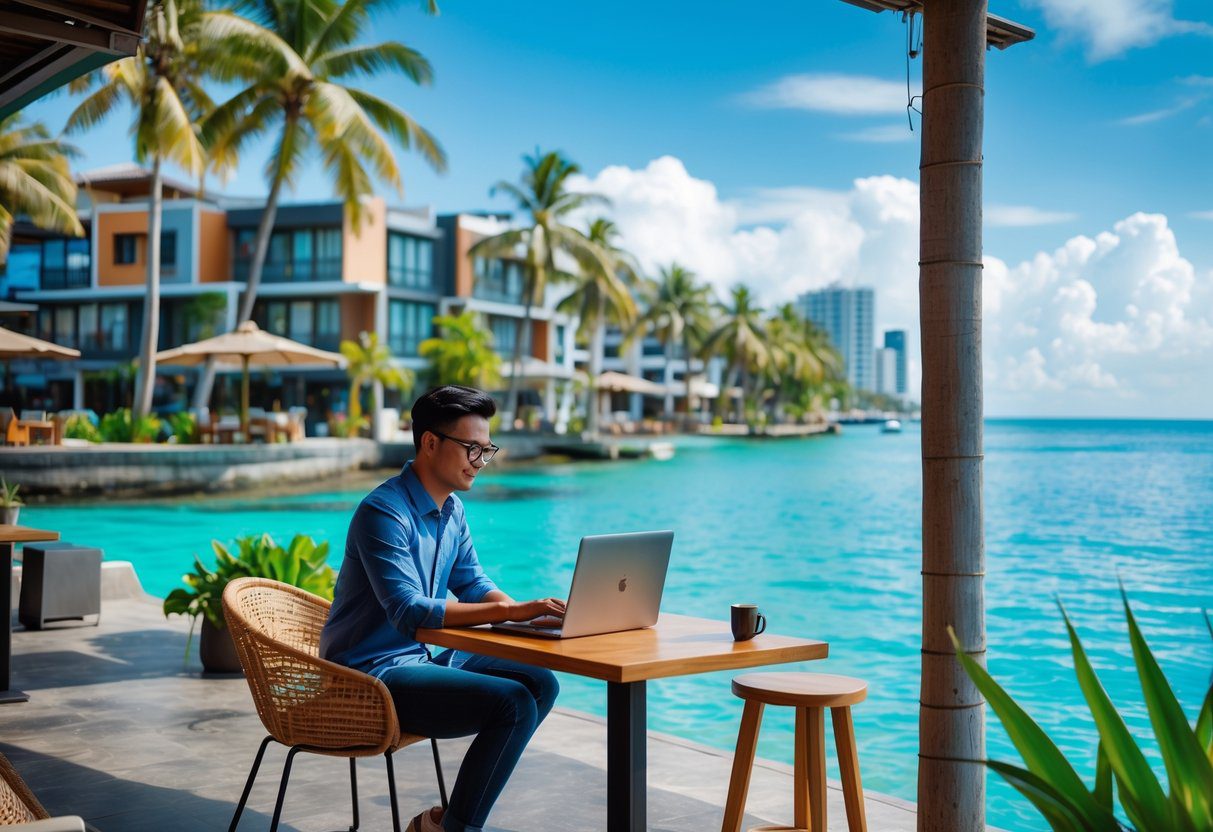
Cebu’s rental market is booming thanks to digital nomads, but this quick growth isn’t without headaches. Managing housing costs, public services, and legal stuff is crucial if things are going to work out long-term.
Infrastructure Pressure and Community Integration
More people looking for rentals can put a real strain on infrastructure. Water, power, and internet sometimes can’t keep up with the growing crowd. Roads and public transport—especially near co-working hotspots like IT Park—are busier than ever.
Healthcare gets stretched, too. Clinics and hospitals can get crowded, making it tougher for everyone to get seen. The mix of cultures and shared spaces adds energy, but it takes some effort from landlords and community leaders to keep things running smoothly and respectfully.
- Utilities: Brownouts and water shortages aren’t unheard of in packed neighborhoods.
- Healthcare: Private clinics are solid, but public ones can get swamped.
- Community: Local events and guides help newcomers settle in and adjust.
Affordability Concerns for Local Residents
Demand for central, furnished apartments is driving up rents. Local families and students are finding it harder to land affordable places near work or school. Some folks are even getting priced out of areas like Banilad and Cebu Business Park.
- Rental Rates (example table):
Area 2023 Avg. (PHP/mo) 2025 Avg. (PHP/mo) IT Park 20,000 27,000 Banilad 14,000 21,000 Beachside 12,000 18,500
Some property owners are flipping long-term rentals into short-term stays for better profits, which means fewer choices for locals. Community groups and city officials are starting to push for zoning changes and incentives to keep housing affordable.
Visa Requirements and Regulatory Updates
Visa rules play a big part in how easy it is for digital nomads to stick around in Cebu. Right now, most come in on tourist visas—those last up to 30 days, sometimes longer if you extend. There’s a lot of talk about a digital nomad visa to make longer stays legal, but as of 2025, it’s not here yet.
- Visa status: Extending a visa can be slow and costs extra.
- Regulations: Ongoing debates cover who can work remotely, tax stuff, and public healthcare access.
- Resources: Nomad guides say to keep an eye on embassy updates, especially during typhoon season when travel and paperwork can get tricky.
Both landlords and tenants need to keep tabs on these changes. New rules might affect who can rent, for how long, and what paperwork everyone needs.
Living in Cebu: Beyond Rentals
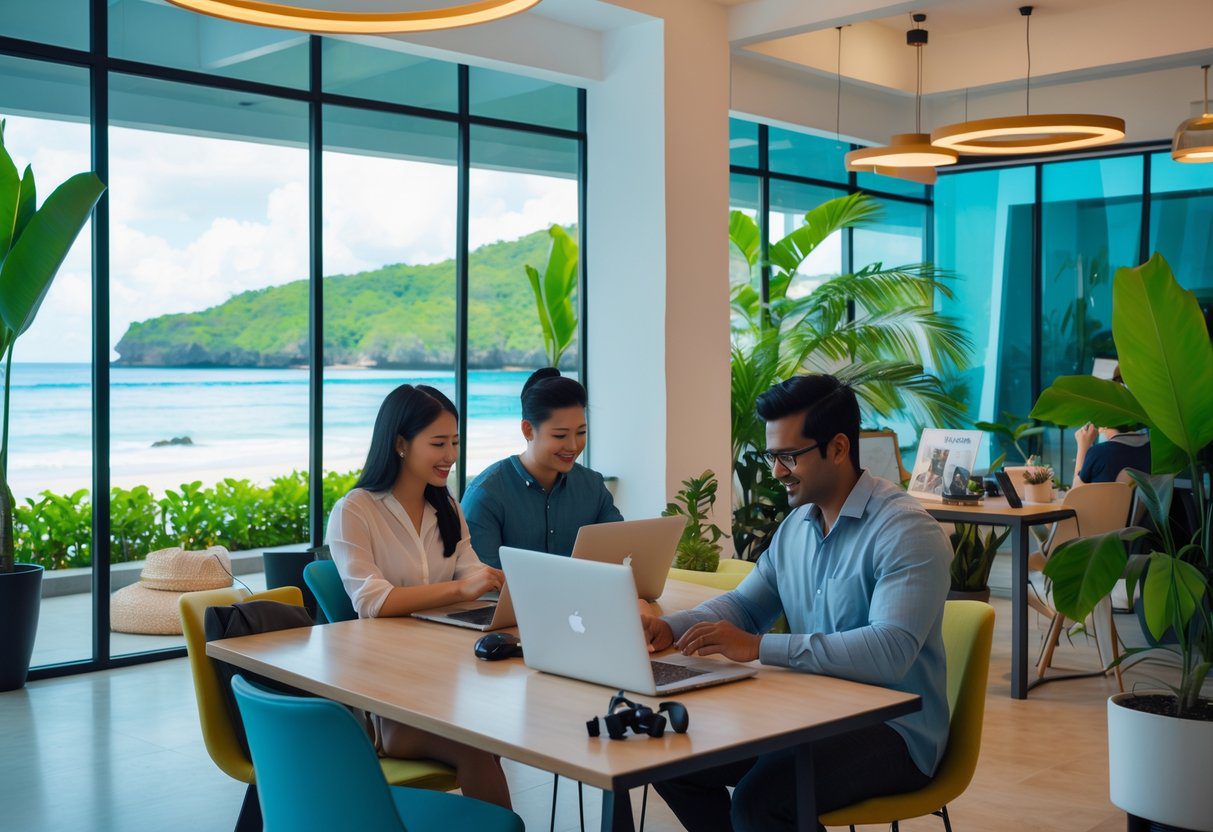
There’s more to Cebu than just finding a place to stay. People here get to enjoy a lively culture, tons of outdoor adventures, and all the basics you’d want for a comfortable life.
Culture and Social Life
Cebu’s vibe is a cool mix of Spanish and Filipino roots.
Events like the Sinulog Festival pull in huge crowds every January—think parades, music, and traditional dances. If you’re curious about history, the Basilica del Santo Niño and Fort San Pedro are worth a look.
Foodies love the sutukil seafood joints, and there’s always something happening at art spots or night markets like Sugbo Mercado. Social life here often revolves around shared meals, community get-togethers, and those coffee shops where everyone seems to end up—locals and expats alike.
Access to Nature, Beaches, and Outdoor Activities
Cebu’s got plenty for nature lovers. Beaches in Mactan, Malapascua, and Bantayan Island are perfect for swimming, snorkeling, or diving.
If hiking’s your thing, trails up Osmeña Peak offer some pretty great views. Kawasan Falls is popular for its blue pools and canyoneering. Surfing? Try San Remigio or Daanbantayan. There’s no shortage of ways to balance work and play here.
Health, Safety, and Best Time to Visit
Cebu has several hospitals and clinics—Chong Hua Hospital and Cebu Doctors’ University Hospital are two big names.
The main city and tourist spots are generally safe, but, you know, it pays to be cautious like anywhere else. Best time to visit? December to May, when it’s dry and typhoons are less of a worry.
Getting around is easy—taxis, jeepneys, and car rentals are everywhere. Pharmacies and emergency services are close by, so day-to-day life is pretty hassle-free.
Frequently Asked Questions
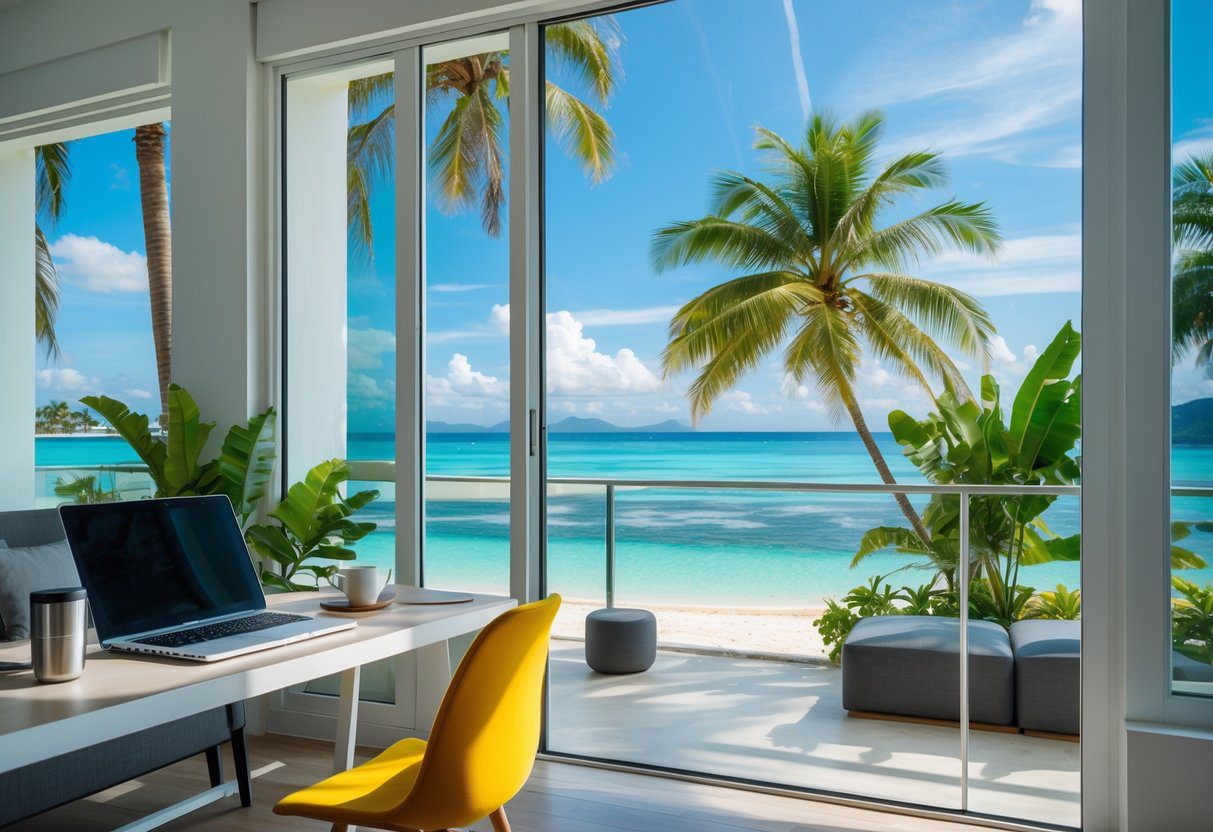
Digital nomads are changing Cebu’s rental scene. They’re driving up demand and prices, shaping how rentals are designed, and raising new questions for everyone involved.
What are the factors attracting digital nomads to settle in Cebu?
Cebu appeals to digital nomads with its affordable living, reliable internet, and hotspots like IT Park and Cebu Business Park. You get urban comforts, easy access to co-working, and beaches close by. The warm climate and everyone speaking English don’t hurt either.
How have landlords in Cebu adapted their properties to cater to the needs of digital nomads?
Landlords are offering more furnished units with fast Wi-Fi, workspaces, and flexible leases. Many places now have in-unit laundry, kitchen gear, and smart TVs. Some owners list on Airbnb to snag short-term tenants.
What is the impact of digital nomads on local rental prices and housing affordability in Cebu?
Rents have climbed in business and tourist areas as digital nomads move in. That’s making it tougher for locals to find central, well-equipped places they can afford. On the flip side, property owners and investors are seeing more income and fewer vacancies.
What benefits do co-living spaces offer to digital nomads in Cebu?
Co-living setups give you a private room but shared kitchens, lounges, and work areas. It’s an easy way to meet people and settle in fast. Utilities and cleaning are often included, so life’s a bit simpler.
What challenges do increased numbers of digital nomads present to Cebu’s infrastructure and local community?
More digital nomads can stretch utilities like power and water and add to traffic in busy areas. With higher demand for rentals, locals face more competition and neighborhoods can start to feel different. Local services and community groups might need to adjust as the population shifts.
How can landlords and investors navigate regulatory concerns around short-term rentals in Cebu?
Local governments often have their own rules for short-term or vacation rentals, and some neighborhoods are stricter than others. Before listing on Airbnb, landlords really need to double-check zoning laws and see if any permits are required. Taxes and homeowners’ association rules can be a bit of a headache too, but skipping them could mean fines or legal trouble down the line.

